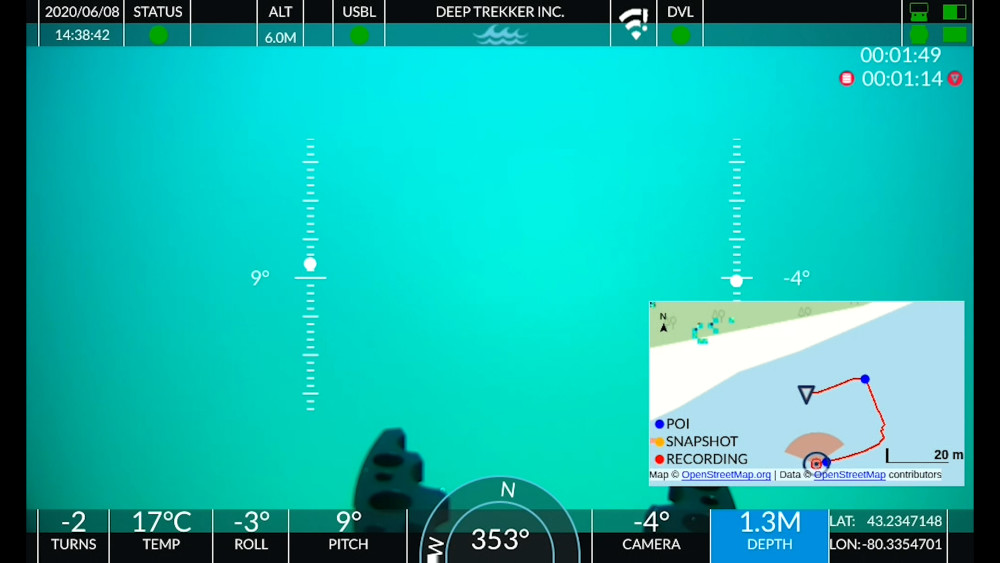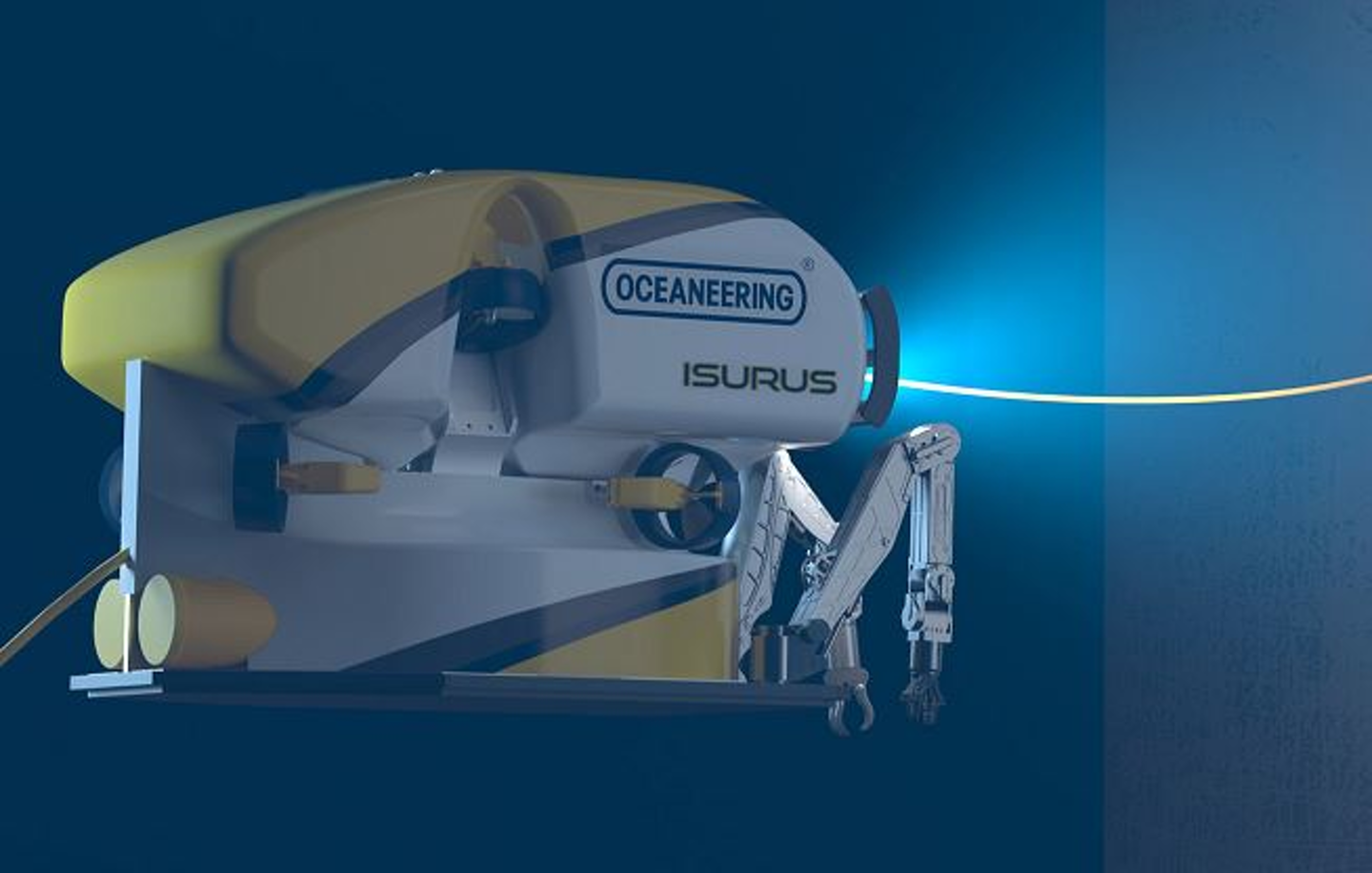Home › Forums › ROV › ROV Industry Vocational Training › Train at an ROV school or not?
- This topic has 43 replies, 22 voices, and was last updated 15 years, 10 months ago by
simulation11.
-
AuthorPosts
-
December 24, 2008 at 11:10 am #2086
James McLauchlan
ParticipantThis one has come up in the past but, as the merits of this was cropping up in another recent thread (under a different topic heading) I thought it better to start a thread dedicated to this very subject. Plus the subject may also worth visiting now that oil has dropped back to sub $50/barrel and the worlds economy is suffering.
To me it looks like people considering getting into this industry are possibly being drawn in by advertising being pumped out by the training schools. This is being presented either in printed matter or via slick websites promising far more than they can guarantee will ever be delivered.
I sense that here in the Forum are two trains of thought about whether attending an ROV training course is worth it or not.
On the one hand most people that have been working offshore for some time have very little time for training schools as often, they may appear to be selling a product by devious means employing the usual phrases like:
"Exciting job" "International travel" "Earn big bucks" "Meet interesting people" etc etc.
‘All your job and money worries are over’ is just about what is being touted.
On the other hand for those that know nothing about this game they would most likely view attending a training school as the standard way into this industry which seems to be the norm for most other vocations.
I feel genuinely sorry for those that have no tech background being accepted by the schools for training without, it seems, the schools being regulated themselves to ensure that they are working within guidelines as to whom suitable candidates may be or to what level they are actually training people to. I increasingly hear (unverified) about people leaving these establishments with a PT ticket of some sorts. In one end knowing bugger all about ROVs and, a few weeks later, out the other end clutching a PT grade of some sorts without having seen an offshore job except on video. How might that work I have to ask myself?
For those people that have a good technical background, with a combination of with hands on experience in Electrical, Electronics or Mech/Hydraulics, I feel that an ROV training course is of little value as most of what they may try and teach you (from an operational and ROV familiarisation standpoint) you would pick up on your first trip offshore and probably forget a bunch of unnecessary stuff they try and get you to absorb.
ROV schools will not teach you how to fly and they will not teach you what you need to know to be a Pilot Tech as that type of knowledge only comes with hands on, time served experience. There seems to be some misconception (by some) that these schools are able to train people from nothing to some kind of recognised Pilot Tech standard (I see IMCA bandied about a lot in support of these claimed grades). I am disappointed to see this practice being employed in the industry but, as we have no ‘training police’ and the industry is unwilling to tackle the problem, it will prevail.
Traditionally, in the past, people did not go on ROV courses as there weren’t any training schools around. Over the last few years ROV has become more mainstream. Couple that with a definite shortage of skilled ROV techs offshore has lead to schools having sprung up left right and centre to try and get in on the act of making money from the shortfall. Lets not kid ourselves here. The Schools are there for no reason other than to make money for their owners/shareholders. Therefore they will operate as any business does in any industry and try to make money the best way they know how. Some do it by devious means others do it by less devious means, but they have to advertise and they have to make their products seem attractive or they will not make sales.
In the coming downturn the majority of these places will fold. Since 1985 I can’t remember how many times diving schools have opened and closed at Fort William (for example) but I am sure the same will happen on the ROV side of things as the industry goes through it’s work cycle of neaps and springs in it’s usual 4-5 yearly manner.
I would suggest that, of late, ROV Ops managers have been so saturated with wannabe ROV techs (possibly brandishing freshly printed training school issued PTII tickets- or whatever may be on them) that they will start to revert to the traditional method of employment… word of mouth and taking a long hard look at the persons background from a practical point of view.
Over the last few years there must be any number of people (who simply did not meet the criteria needed to feed the industry with useful trainees) having been drawn into this game by the advertising tactics and apparently slack vetting of training schools. It’s these poor souls that will most likely suffer when contracts start to dry up. Lets face it, if the limit of someone’s tech skills is them wielding a comp bottle, carrying out a few deck checks and sitting in the seat babysitting the sub whilst the only person on the team that can fly has a meal there isn’t much hope for them is there?
I don’t know what the real answer might be but maybe I have offered up some cause for comment.
December 24, 2008 at 1:52 pm #21159Feyd
ParticipantI would never go to one personally because of the money involved and the lack of formal certification, but its easy for me to take that position as I’ve worked with micro-ROV’s for years and have had some relevant experience beforehand that would hopefully give me an edge if I applied for a trainee position.
For someone who’s never even seen an ROV in person and has no technical qualifications i can see the temptation for the easy route the course imply to offer. But at the end of the day if you’re going to do a technical job in a demanding environment where its unacceptable for the vehicle to have too much downtime, you should have a technical qualification. I dont belive you can learn it all in a month or so, hence why Im finishing my electrical HNC.
December 24, 2008 at 3:53 pm #21160Andy Shiers
ParticipantGood on you Feyd ,
You will learn more in a day with the ROV than you ever will on an ROV course, Do an apprentiship with an ROV company and save ya self some preety pennies.
Good luckDecember 24, 2008 at 4:31 pm #21161Feyd
Participantcheers mate. I’d rather spend a few years onshore getting the skills I need rather than doing some overpriced course in a month, show up offshore and not have a fucking clue.
One day hopefully I’ll graduate to working with the ‘grown-up’ ROV’s, happy with the stuff I’m doing for now though. I’m just hoping my experience with the smaller vehicles will give me an edge over the thousands of other guys applying.December 24, 2008 at 7:50 pm #21162Andy Shiers
ParticipantYou’re right there Feyd , there is a difference between flying workclass
(Tank) and an inspection vehicle (racing car)
I feel flying in the proper sense would be inspection on platforms. Get that under your belt and you are one up on all the people who spend their whole work life on BlimpsDecember 24, 2008 at 8:58 pm #21163Feyd
ParticipantI’ve tried a couple of workclass simulators in aberdeen, the biggest difference I found was getting used to a multi-jointed manipulator arm as opposed to a simple open and shut grabber. good fun though.
December 25, 2008 at 12:27 am #21164Andy Shiers
ParticipantOh Dear
December 25, 2008 at 8:19 am #21165trencher1
ParticipantIn my opinion there is no value in ROV training schools and I agree with the viewpoint that these schools are placing their own business interests first. For years the diving industry has been littered with people who despite their ability (or lack of) have been persuaded to invest time and money in training courses, the carrot being big bucks and long term employment. Most of them end up with nothing more than a depleted bank balance and the realisation that employment opportunities are very limited.
The ROV industry is no different so wanabe pilots beware
Technical ability is a prerequisite, and piloting skills are best developed on the job. If you are technically qualified, invest your cash/time on a survival course and submit a decent CV to prospective employers.
December 25, 2008 at 10:05 am #21166Andy Shiers
ParticipantYeeeeeeey
Common sense prevails again !December 26, 2008 at 2:37 am #21167RTFM
ParticipantI agree, IMO an ROV training school is a business that has sprung up since ROV’s became more ‘mainstream’. The idea of providing ROV training is good, but the object of a business is to make money. If they were well intentioned then this would provide the industry with much needed ‘trained’ ready to go people. I think they provide a small part of that – not all school guys should be ignored. The sad part of this is that people with no technical knowledge are led to believe that their ‘course’ would provide enough training to cover these things , Having had the pleasure of continuing the training of some ‘schooled’ guys then I remain cynical(distrusting or disparaging the motives of others) about the methods and techniques of some ‘trainers’, I was astounded with the ‘stamps’ they had given for various disciplines. James asked the question ‘ what is the answer'( because we do need more new people). In-house training is the way to go, if the guys like myself, are willing to pass on the knowledge and experience, – given that our employers are forward thinking – then this can only benefit us all. There in lies the difficulty. Bums on seats at lowest cost. There are some companies that are doing their best to bring guys in and train them with a view to enhancing their company, it makes sense. I would not wish to put off people that are trying to make a go of it through any route, but would strongly recommend trying to do it through an established mob rather than a ‘school’. Hands on with a real system is hard to beat, and the determination and focus that you might take to the school should be (depends what company) guided for that companies benefit – and yours!
During this festive season I will leave a quotation: "No man who is concerned in doing a difficult thing, and doing it well, ever loses his self-respect" (George Bernard Shaw)
Good luck to all ROV dudes and those yet to come!
RTFMDecember 26, 2008 at 10:37 am #21168Andy Shiers
ParticipantYaheeeeeeeeeeeeeeeeeeeeeeeey
Another person with sound qualities , common sense and much wisdom
Even if he is Jockenese
A man after me on heart .
I think I’l start a new topic from this one going off at a slight tangentJanuary 23, 2009 at 10:52 am #21171star
ParticipantIt is all well said on this subject.. Rov schools should be avoided,
its better to make a rov pilot tech from a engineer(or technical experienced person) rather than make a engineer/technical experienced person from a Rov pilot/tech from these schools!January 23, 2009 at 3:14 pm #21170Scott Beveridge
ParticipantHere we are again… One would think, with the multitudes of replies, discussions, and threads on this very subject that one would either get a) very bored and yawn ones way to the next topic b) pull one’s hair out and become very upset or insane c) become very apethetic and ummm, ummm…
In reverse order..
Star , you surprise me sometimes, that was pretty spot on….
Lost, I know where you stand with this and agree..
RTFM, You said, "The idea of providing ROV training is good, but the object of a business is to make money." Agreed 100%!! As well as all these pop-up agencies… (Make it another thread Lost…) and the next bit… "not all school guys should be ignored" YES!! I agree with this – should the trainee have a technical AND practical background YES!! and the next bit… "In-house training is the way to go" are willing to pass on the knowledge and experience…. Sadly, the fact is that a lot of experienced guys ARE NOT willing…and Again, this has worked EXTREMELY well for quite a few companies – old guys .. if you could show some concurrence here…
January 23, 2009 at 4:25 pm #21172turtle
ParticipantThis is a situation of a lot of “shoulds”. Old guys should teach the new guys. Trainees should have a full technical background prior to entering the biz. Companies should provide training.
We live in a world of “carrots and sticks”. If there were appropriate amounts of each, these “shoulds” would all become moot points. Yes there is a place for commercial ROV training courses. They fit a need between the companies unwilling to spend a lot of time and energy in training and screening and provide a path for someone who is not “inside” the business to get a start. Yes, applicants SHOULD have a technical background to apply to a school. Who will define and enforce this standard?
Everyone wants trained qualified entry level personnel. No one will take responsibility to set, maintain and enforce standards. Until there is industry wide standard uniformity, it will continue to be a matter of training schools for profit, ROV companies taking their best guess at the pile of applicants, clients demanding qualified personnel on the job. In this scramble the fittest will survive, economics being a cruel King Solomon.
January 23, 2009 at 8:49 pm #21173Anonymous
GuestF–k passing on any knowledge to trainees.I certainly would not.Alot of us are contractors,and unfortunately my dear fellows,its a dog eat dog world out there.Every man for himself,as selfish and sad as this may sound…Its reality….I would pass on to any trainee the bare minimum of my knowledge,especially when you see some of the messages posted by trainees on this website..some of them really are making a bad name for themselves before they have evn got a foot in the door…..
-
AuthorPosts
- You must be logged in to reply to this topic.








